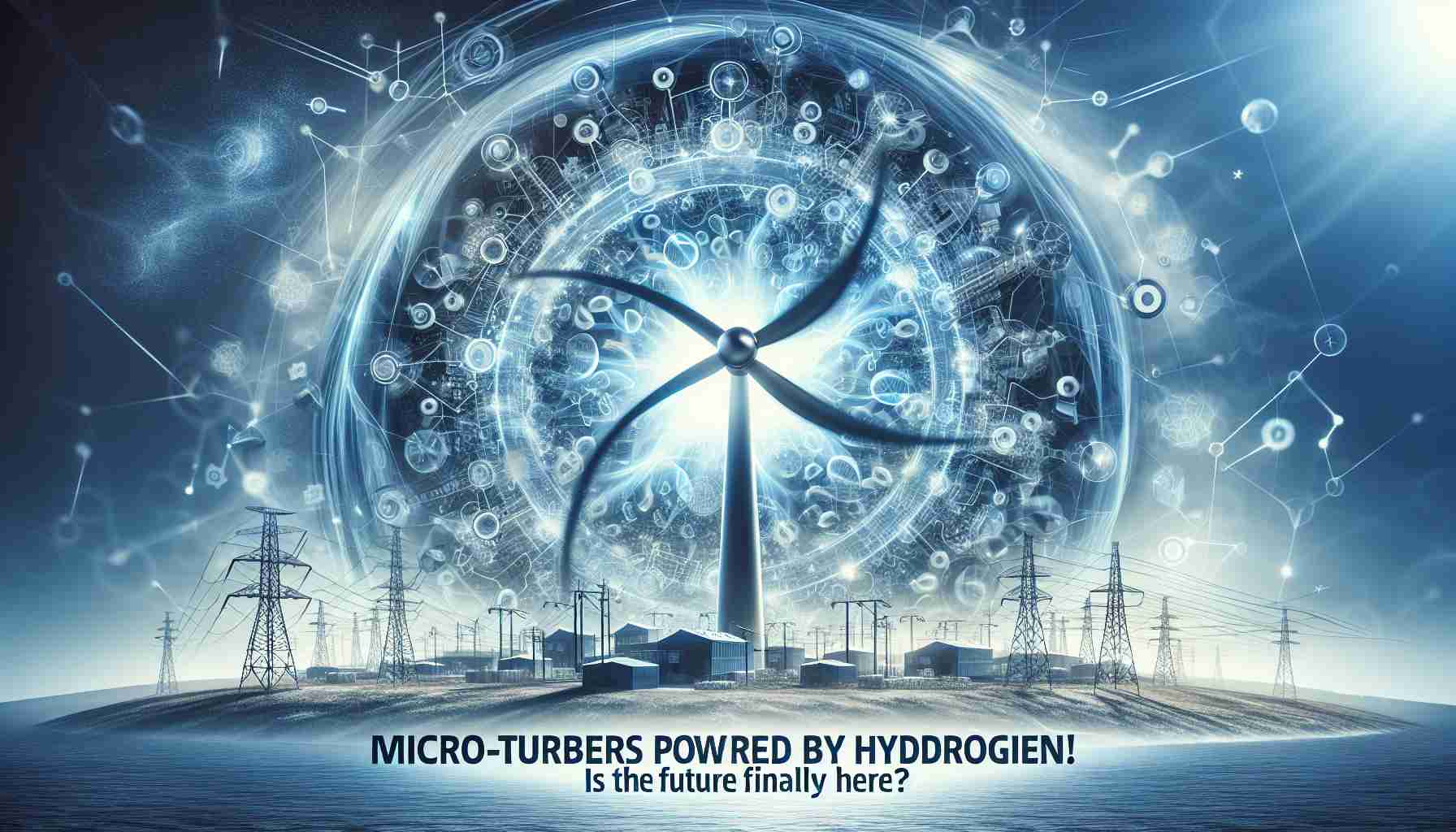
Innovative strides are being made in the energy sector as researchers at the German Aerospace Center (DLR) and Power Service Consulting (PSC) explore new ways to power micro-turbines. In light of the urgent need to transition away from fossil fuels, the idea of integrating hydrogen into existing systems is gaining traction. DLR is focused on retrofitting small natural gas power plants to utilize hydrogen, paving the way for a sustainable energy future.
Constructing new power facilities is cost-prohibitive and time-consuming, taking about six years and nearly €30 million for a 15-megawatt gas turbine plant. In contrast, retrofitting existing setups can be accomplished in just 1.5 years at a substantially reduced cost. This practical approach aims to bridge the gap until a green hydrogen economy can flourish.
To effectively manage the unique challenges posed by hydrogen, engineers have developed a cutting-edge jet-stabilized burner. This system allows the micro-turbine to operate efficiently using either hydrogen, natural gas, or a blend of both. A pilot plant in Lampoldshausen has successfully demonstrated the technology, running on pure hydrogen for over 100 hours without issues, achieving full power output.
The new design represents a significant leap towards cleaner energy solutions, highlighting the potential of micro-turbines as a versatile option for future power generation. As we work toward a hydrogen economy, innovations like these may play a crucial role in reshaping the global energy landscape.
Revolutionizing Energy: Hydrogen-Powered Micro-Turbines on the Rise
Innovative Hydrogen Solutions for the Energy Sector
The energy sector is poised for a transformative shift as researchers at the German Aerospace Center (DLR) and Power Service Consulting (PSC) pioneer new strategies for powering micro-turbines. Given the pressing need to move away from fossil fuels, the incorporation of hydrogen into existing energy systems has become a prominent focus of research and development.
Advantages of Retrofitting Over New Construction
Building new power generation facilities is an expensive and time-intensive process, often taking around six years and an estimated €30 million for a mere 15-megawatt gas turbine plant. Conversely, retrofitting existing natural gas plants to accommodate hydrogen can be accomplished within just 1.5 years, significantly cutting costs and expediting the transition to cleaner energy sources. This retrofitting approach not only minimizes financial commitments but also optimizes existing infrastructure, making it a practical solution amidst evolving energy demands.
Technological Innovations in Micro-Turbine Efficiency
To address the challenges that hydrogen presents in energy systems, engineers have engineered a state-of-the-art jet-stabilized burner, which enables micro-turbines to run efficiently on hydrogen, natural gas, or a combination of both fuels. This technology has been successfully tested at a pilot plant in Lampoldshausen, where the micro-turbine operated on pure hydrogen for over 100 hours. Such advancements mark significant progress toward achieving reliable and efficient hydrogen utilization for power generation.
Features and Benefits of Hydrogen-Powered Micro-Turbines
– Versatility: The ability to use hydrogen, natural gas, or a mix allows for flexible energy solutions, catering to varying market and environmental needs.
– Rapid Implementation: Retrofitting can be achieved in a fraction of the time required for new plant constructions, enabling faster adoption of cleaner technologies.
– Sustainability: Transitioning to hydrogen-powered systems aligns with global sustainability goals by reducing dependence on fossil fuels.
Pros and Cons of Retrofitting with Hydrogen
Pros:
– Cost-effective compared to building new facilities.
– Shorter timelines for implementation.
– Utilization of existing infrastructure reduces waste and resource expenditure.
Cons:
– Technical challenges in adapting current systems to work efficiently with hydrogen.
– Initial investments in retrofitting technology may still be significant.
– Market readiness for hydrogen supplies can be a potential issue.
Future Trends in Energy Production
The evolution towards a hydrogen economy is gaining momentum, with innovations in hydrogen technologies continually shaping the energy landscape. As global momentum toward sustainability accelerates, hydrogen is expected to play a vital role in a diverse range of applications beyond power generation, including transportation and industrial processes.
Insights and Market Predictions
As industries pivot towards greener alternatives, the market for hydrogen-based technologies is forecasted to expand significantly. By addressing key obstacles and implementing cutting-edge solutions, researchers and engineers are paving the way for a future where hydrogen is a mainstay in energy production.
For more related content, visit the German Aerospace Center (DLR).



